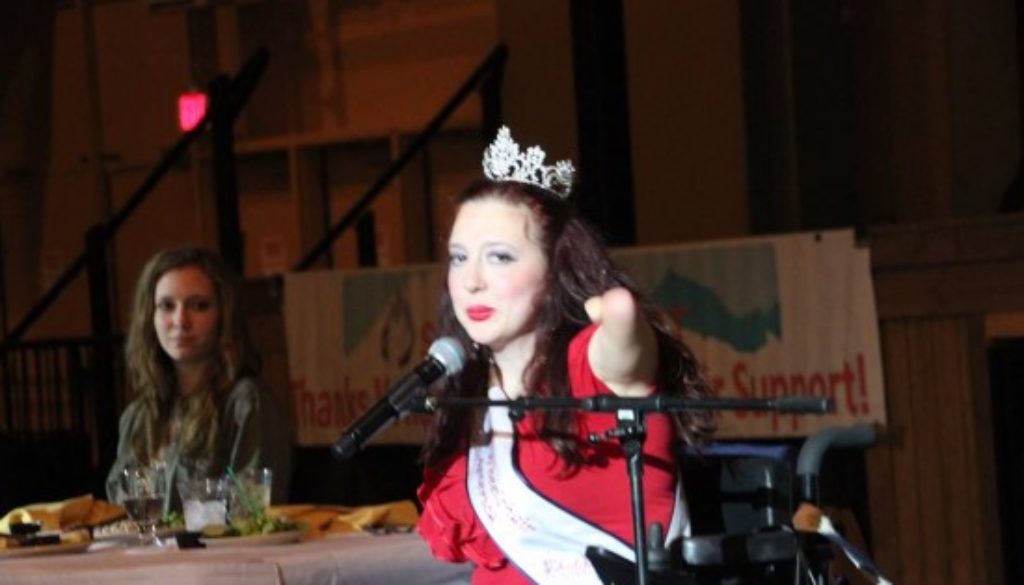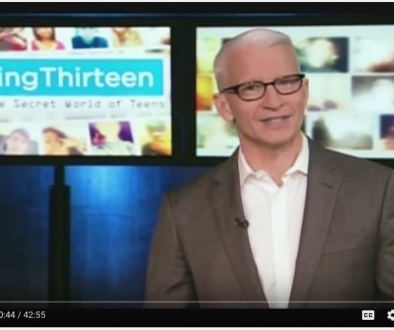Pay Attention!
Pay attention! Jennifer Adams has a powerful voice and she knows how to use it. She has a lot to say about bullying. During an interview with Jennifer, she and I covered multiple issues that had to to do with her disabilities; she was born without limbs. No hands, no feet, but a beautiful voice that she uses as a professional singer, motivational speaker and as an advocate for those with disabilities. Jennifer has a Bachelor of Arts in Psychology and a minor in Vocal Performance from Pacific Lutheran University, followed by a Master of Arts in Counseling from Faith Evangelical Seminary, along with a Certification in Applied Technology in Radio Broadcasting. She has been a working woman in the fields of Tele-communications, Radio Broadcasting, Public Speaking and Education. She has published two books, Discover Your Identity and Dreams Come True! And she won the title of Ms. Wheelchair America 2014.
While friends and family may forget about Jennifer’s disabilities, a lot of people are discomfited by her, for many reasons. As a child, Jennifer was bullied unmercifully in school, which demoralized her and plummeted her into depression. We discussed what makes a few people, especially children, behave so meanly towards her and others with disabilities. It is her “otherness”, not like a “normal” person. It is ignorance, a lack of social skill on what to expect from a disabled person, and how to respond to someone with limited capabilities. If you do not look like me, then you are in another category, one of “them” not one of “us”.
Another facet of the “otherness” that makes people uncomfortable, is if a disabled person is more accomplished than I am, what does that say about me? Most adults lack experience with disabilities and find it embarrassing to be around someone who has obvious needs, but what are you supposed to do for that person? When I think I am being compassionate and helpful, am I being patronizing? What can I expect a disabled person to do for himself or herself? There is an element of superiority in an attitude of “helping” someone too much, to the point of disrespecting the disabled person by not acknowledging the person as someone who can think, act, and be valued as a person, just like you.
Jennifer is not to be pitied. It is not necessary to treat her like a child because of her limitations. Upon first meeting her, there is an alarming moment when you see her as vulnerable—”she needs help!”—but after only a few minutes being with her, you think “Wow! she isn’t crippled! She can do a lot for herself!” It is evident that she is very capable and independent, but recognizes that she did not get “here” without help from family, friends and strangers. There is the problem of mechanics, getting from point A to point B, all the physical barriers that do not present problems for most people. On a daily basis, it is the small kindnesses of those she interacts with; opening a door, making extra room for her wheelchair, reaching for that hard-to-get-to item, holding the elevator for her entrance, the small niceties that people do for each other. And in doing these things for another, one’s humanness is respected, rather than another’s “otherness”. We are “pack animals”, with tribes, clans and families, all interdependent upon one another on a daily basis, all of our lives.
Jennifer would like to put you at ease with her disabilities, so that you can appreciate her, and those with disabilities, as persons deserving respect and acceptance. Jennifer is a strong, confident woman who has challenges, but also someone with a sublime voice that has a message for all of us. Be inspired by Jennifer Adams at www.jenniferlynnadams.com.



